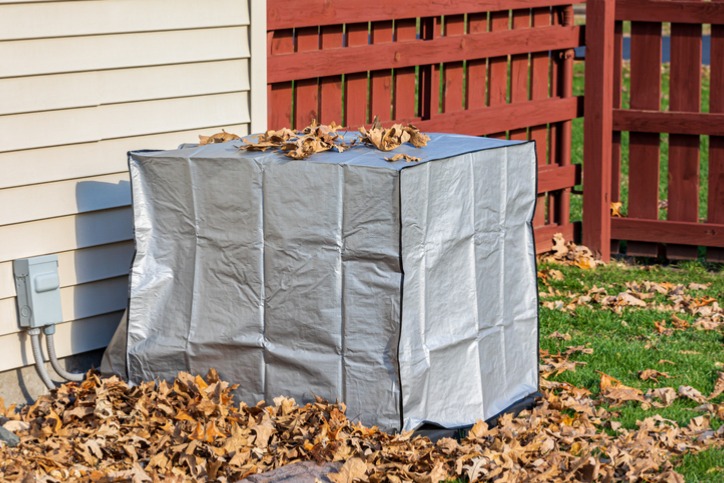Most people are unaware that fall can bring about a whole host of air quality problems in your home. With cooler weather comes the temptation to close windows, turn off fans, and rely on heating systems to stay warm. However, this accumulates indoors and accumulates stagnant air and pollutants, such as allergens, dust, and pet dander. Poor indoor air quality can trigger allergies, cause respiratory issues, and even lead to long-term health problems. Therefore, monitoring and action to ensure optimal indoor air quality year-round is essential. At Spoor's Heating & Air Conditioning, we understand how the different indoor air quality problems fall and how you can fix them. If you suspect the air quality of your home is less than ideal, contact our HVAC contractors to schedule service. Our experienced technicians will test and treat your HVAC system to improve indoor air quality.

Fluctuating Temperatures
When the temperature changes frequently, so do humidity levels, and it becomes harder to monitor indoor air quality levels. This could be due to several reasons, such as inadequate ventilation, the accumulation of air contaminants, or even moisture buildup.
To address this problem, be mindful of how often your HVAC system is running and ensure prompt ventilation in your home. It's also essential to address any moisture issues, such as leaks or humidity, to prevent mold growth, which can contribute to poor air quality. Overall, homeowners can enjoy improved indoor air quality and a healthier living environment by being proactive and taking the necessary precautions.
Poor Air Circulation
Poor air circulation can be the root cause of many fall indoor air quality problems that can negatively impact the health of you and your loved ones. With poor air circulation, certain areas of your home do not receive fresh air, which can lead to a buildup of pollutants and allergens. Airborne contaminants, such as dust mites, mold, and pet dander, may accumulate in such areas, and the air quality could become hazardous over time.
The best course of action is to contact your HVAC technician, who can help you improve the air circulation in your home. This could involve installing additional vents or a more powerful and efficient fan, which will move air more effectively. Dust and other pollutants can accumulate in your air ducts over time, reducing airflow and exacerbating the air circulation problem. A professional HVAC technician can inspect and clean your ducts, removing blockages and restoring airflow.
Seasonal Allergens
When seasonal allergens are in full bloom during the fall season, it's not just outdoor environments that are affected. Poor indoor air quality can also result in increased allergens inside homes or buildings, causing discomfort and health issues for allergy sufferers.
To combat this, consider investing in a high-quality air purifier to help eliminate airborne allergens, thus improving indoor air quality. Additionally, regularly changing air filters in HVAC systems, vacuuming carpets and upholstery, and keeping humidity levels at a moderate level are all important steps toward reducing allergen exposure. By taking these proactive measures and remaining vigilant about indoor allergen control, individuals can breathe easier and enjoy their fall season to the fullest.
